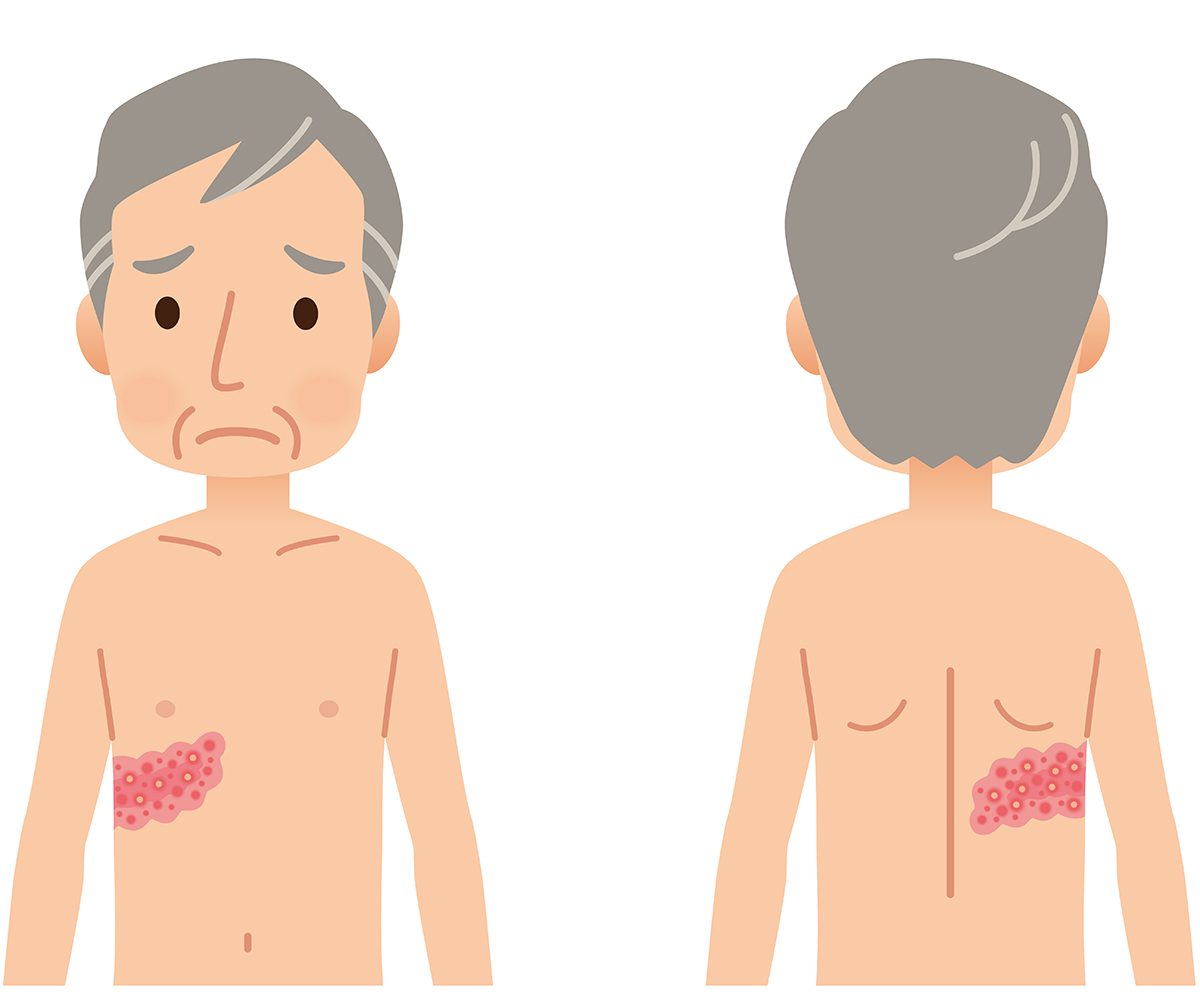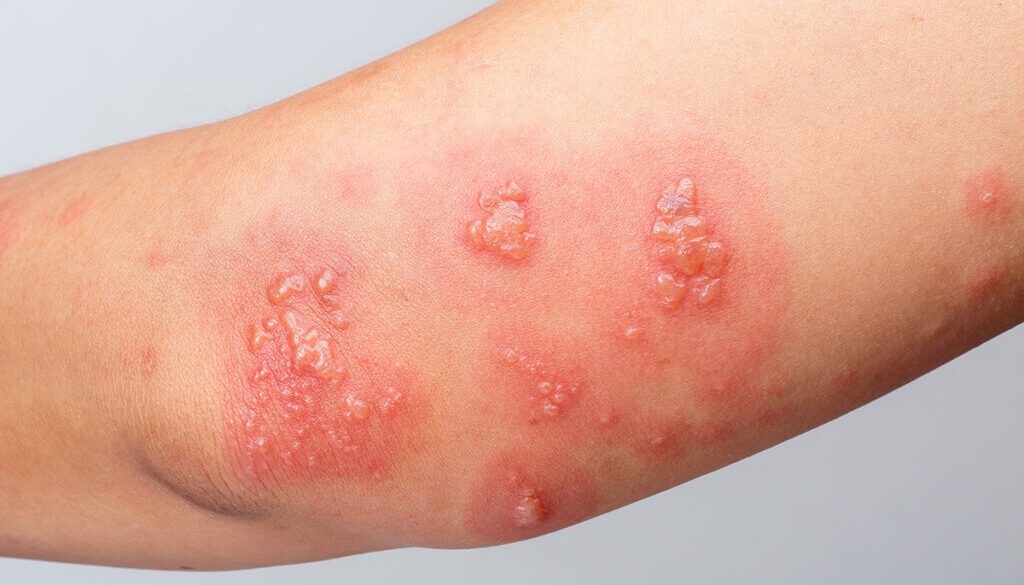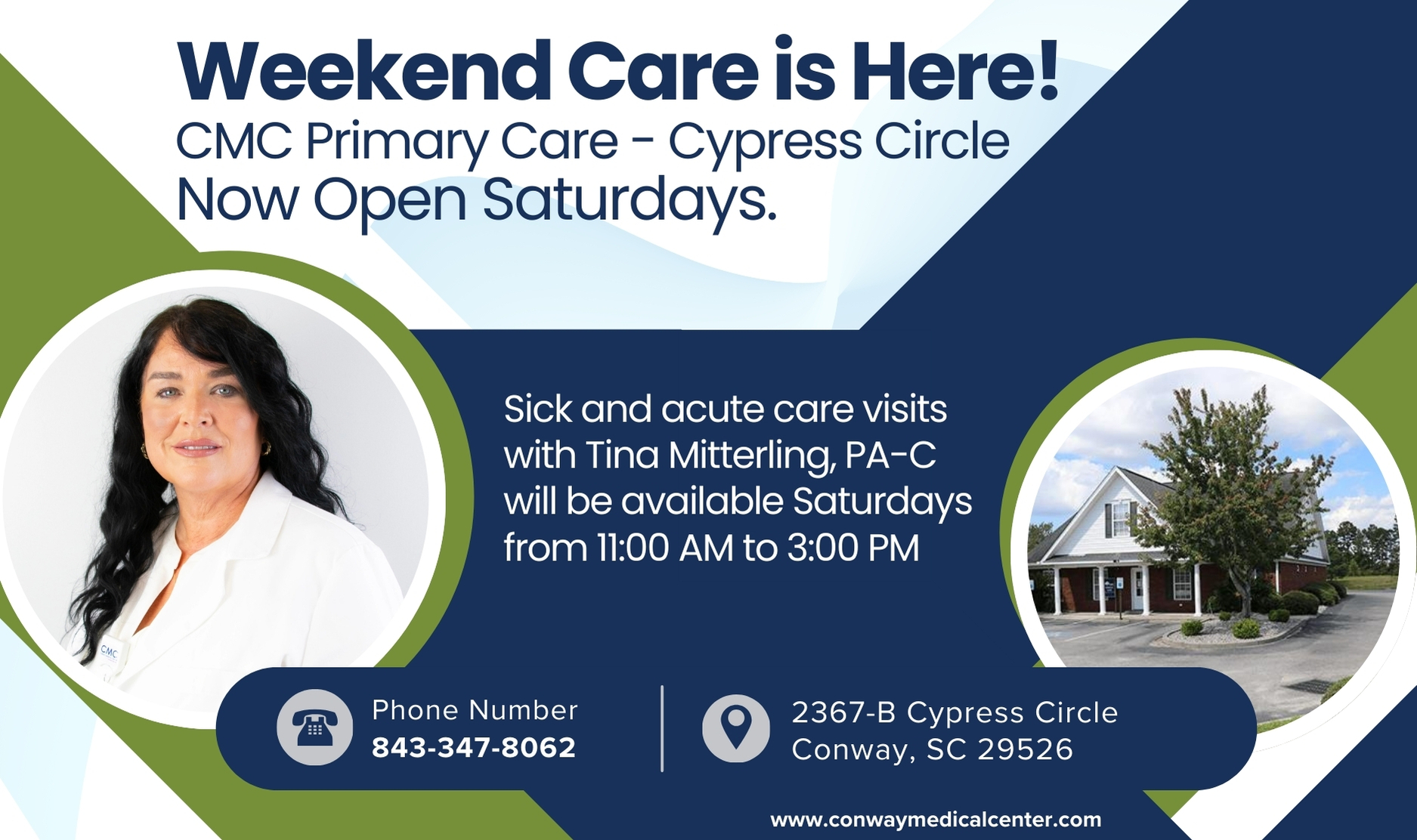Should I Get the Shingles Vaccine?
1 in 3 people in the U.S. will develop shingles in their lifetime.
The Centers for Disease Control recommends that adults 50 years and older get two doses of the shingles vaccine called Shingrix to prevent the disease and complications from it. Tina Mitterling, PA-C with CMC Primary Care – Cypress Circle has seen many patients suffer from this painful and sometimes recurring rash, and wants to help her patients avoid this experience.
What is shingles?
Shingles is a painful rash that develops on one side of the face or body. The rash may be more widespread in people with weakened immune systems.
“The shingles rash is related to chickenpox, and it creates blisters on the skin,” explained Tina. “Many patients who’ve experienced shingles describe it as extremely painful. They often report waking up with unexpected pain and a rash, wondering what happened and why it hurts so badly.”
The symptoms a person might experience with shingles are:
- Pain, itching, or tingling of the skin followed by a
- Painful rash of blister-like sores, usually on one side of the body, often on the face or torso
- Fever
- Headache
- Chills
- Upset stomach

“An interesting thing about shingles is that usually, patients develop a rash on only one side of the body,” Tina explained. “It can appear anywhere, but typically affects just one side. Patients describe it as an intensely painful, spreading rash that can take several weeks to heal, and many are left with scars from the blisters. I’ve had numerous patients who struggled with walking, sleeping, and performing daily activities because of the severe pain. That’s why I’m passionate about educating patients on the vaccine—shingles is preventable, and no one should have to endure this pain.”
Why do you recommend the shingles vaccine?
“I want people to know that this rash and the uncomfortable pain that comes with it can be prevented,” stressed Tina. The CDC recommends that anyone 50 years old and older receive the shingles vaccine. They also recommend that younger adults, 19 years and older, with weakened immune systems get vaccinated as well. More than 99% of Americans born after 1980 have had chickenpox, and because of that, they are at risk for shingles.
“Even if you’ve had a chickenpox vaccine, you can still get shingles,” said Tina. “Vaccination is something all people need to consider and discuss with their primary care physician.”
Get Your Shingles Vaccine at CMC Primary Care
CMC Primary Care is committed to providing comprehensive healthcare services to the Myrtle Trace, Carolina Forest, and Conway communities. We’re excited to announce that we now offer Saturday Clinic hours with Tina Mitterling, PA-C at our Cypress Circle location for sick and acute care visits from 11:00am to 3:00pm. For appointments, please call 843-347-8062.





